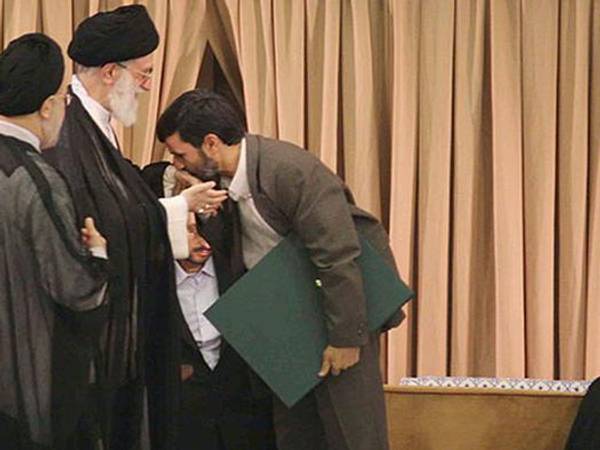The leader of Iran’s ultra-hardliner Paydari Party is paving the way for the return of former President Mahmoud Ahmadinejad to politics, one of his former aides claims.
In an interview with the conservative Khabar Online, excerpts of which were published Monday, Abdolreza Davari alleged that the Secretary General of Paydari, Sadegh Mahsouli, in a recent interview, has signaled to the regime that Ahmadinejad is prepared to backtrack from his controversial behavior in recent years if he is given a share in power.
The former president began criticizing the regime after he was not allowed to run again in 2017 and his defiance gradually increased to the point of attacking Supreme Leader Ali Khamenei directly for multiple crises in the country. However, he has been silent for more than a year, keeping a low profile.
“They want to revive and restore the status of Mr. Ahmadinejad within their organization,” Davari who once served as an advisor to Ahmadinejad but has completely distanced himself from him in the past few years, said. He went on the say that Paydari is the only politic al force engaged in reviving Ahmadinejad’s political status.
These comments were made a week after in an interview with the Revolutionary Guards (IRGC) linked Fars News Agency, Mahsouli praised Ahmadinejad, calling him “charismatic” and a person with “innate management capabilities” and a good command of many things including the economy and diplomacy.
At the same time, Mahsouli who says he has not had any contact with Ahmadinejad in twelve years, showered some praise on Raisi and his administration but claimed that his party does not have anyone in the government. Contrary to this assertion, it is a well-known fact in Iran that Paydari’s ultraconservative members hold many positions in the Raisi administration.
Mahsouli who has led the Paydari Party in the past three years is a former Revolutionary Guard officer and a business tycoon who served as minister of interior and minister of welfare and social security under Ahmadinejad.
Political rivals and critics such as Afshar Soleimani, a former diplomat, allege that he amassed his wealth when Ahmadinejad allowed him to control the oil swap business with the Republic of Azerbaijan in the early 2000s, when he was a governor.
Soleimani also alleged in an interview last week that Mahsouli and Ahmadinejad only pretend to be not on good terms and pointed out that neither has ever spoken seriously ill of the other and will stand together again unless something drastic happens.
The Paydari (Steadfastness) Party has its appendages in all government institutions including the parliament where their members form a very influential minority that often takes a leading role amid the weak presence of established conservative and reformist parties.
Many believe Mahsouli, then interior minister, was the man behind the alleged rigging of the 2009 elections which secured a second term for the incumbent Ahmadinejad.
Both men were strongly supported by Ayatollah Mohammad-Taghi Mesbah-Yazdi, ultra-hardliners’ spiritual father, who withdrew his support from Ahmadinejad after his fall from Supreme Leader Ali Khamenei’s grace in May 2011.
In another interview a year ago, Davari claimed that around eighty percent of high-ranking officials in the Raisi administration were picked from among those serving in high positions in Ahmadinejad’s government.
In the same interview he dubbed the Raisi administration as “Ahmadinejad’s third government”. He has also previously alleged that in the past few years the former controversial president has been of the belief that the Islamic Republic is doomed to collapse and when it does, he wants to be Iran's Boris Yeltsin “and commandeer all power in one go”.
